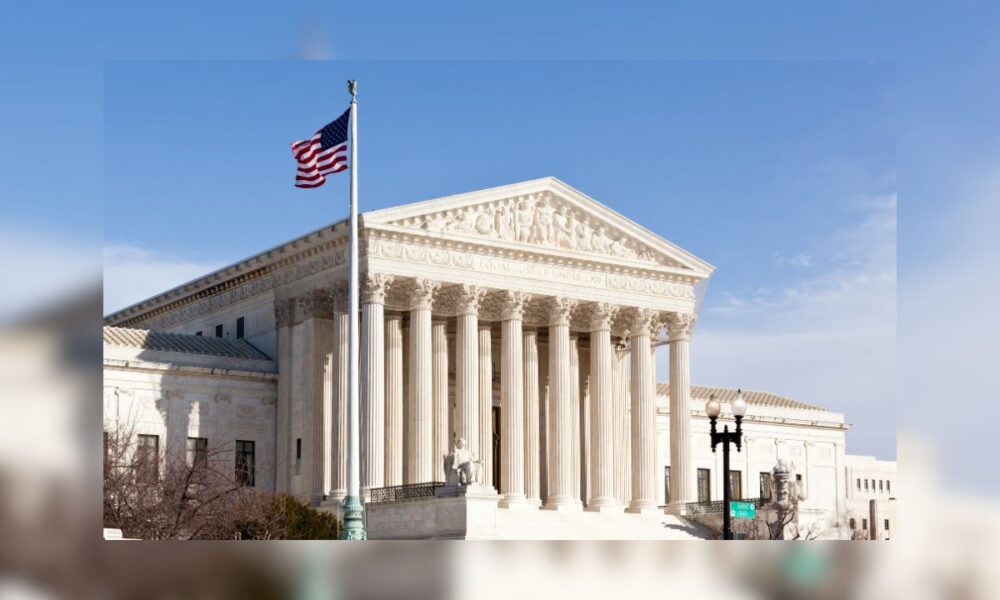The U.S. Supreme Court opened its new term Monday with three major cases testing the limits of state authority, parental rights, and “transgender” ideology in schools and counseling.
The high court will hear challenges to state laws protecting fairness in women’s sports and a Colorado measure restricting faith-based counseling for minors. The term, which began October 6, 2025, also features high-profile cases on presidential powers, voting rights, and executive authority.
Together, the outcomes could set sweeping precedents on how far states may go to protect children, parental rights, and female athletes from federal or activist interference.
Chiles v. Salazar
One case, Chiles v. Salazar, challenges Colorado’s 2019 ban on licensed mental health professionals performing conversion therapy on minors. Licensed counselor Kaley Chiles, who provides “faith-informed” therapy, argues the law violates her First Amendment rights by censoring private conversations about gender dysphoria and sexuality. “They’re peering into the counseling room and intruding on these private counseling conversations,” Chiles told CBS News.
Colorado law defines conversion therapy as “any practice or treatment by a licensed physician specializing in the practice of psychiatry that attempts or purports to change an individual’s sexual orientation or gender identity, including efforts to change behaviors or gender expressions or to eliminate or reduce sexual or romantic attraction or feelings toward individuals of the same sex.”
Federal district court Judge Charlotte N. Sweeney upheld the state’s position, ruling it has an interest in protecting minors from what she called “harmful and ineffective” treatment.
The Trump administration has backed Chiles’ challenge, with Solicitor General D. John Sauer writing that “Colorado is muzzling one side of an ongoing debate in the mental-health community about how to discuss questions of gender and sexuality with children.” Sauer said the state “bears a heavy burden to justify that content-based restriction on protected speech.”
Similar bans have divided the courts. The U.S. Court of Appeals for the 11th Circuit struck down comparable restrictions in Florida in 2020, finding that “the First Amendment has no carveout for controversial speech.”
A decision in Chiles v. Salazar is expected by late June or early July, according to The Hill.
Little v. Hecox / West Virginia v. B.P.J.
The court will also take up Little v. Hecox and West Virginia v. B.P.J., both cases involving state laws that bar “transgender” male athletes from competing in girls’ and women’s sports. About half of U.S. states have enacted similar restrictions in recent years, and the Trump administration has sought to reinforce those policies through federal guidance.
Idaho’s law, challenged in Little v. Hecox, was among the first of its kind when passed in 2020. It bans males who claim to be females from joining female sports teams and requires sex verification testing if an athlete’s gender is disputed. Plaintiff Lindsay Hecox, a “transgender” student at Boise State University, initially sued but has since sought to withdraw from athletics. State lawyers urged the Supreme Court to keep the case alive, calling the issue “of pressing nationwide importance.”
In West Virginia v. B.P.J., a “transgender” middle school student, Becky Pepper-Jackson, sued after being barred from joining his school’s girls’ cross-country team. Lower courts sided with Pepper-Jackson, finding the state’s law violated Title IX and the Constitution’s equal protection clause.
The administration has supported the state laws with lawyers telling the Court that the restrictions are “reasonable” and align with the president’s executive order banning “transgender” athletes from women’s and girls’ sports. “The President has determined that the participation of male trans-identifying athletes in female sports ‘is demeaning, unfair, and dangerous to women and girls,’” the administration wrote in its filing.
Legal observers say the outcomes could redefine the scope of state power in regulating gender-related policies. “I know we’re going to win,” said James Burnham, managing partner of King Street Legal and a former clerk to Justice Neil Gorsuch, during an event hosted by the Heritage Foundation. “If we have him, then we win.”
Advocates for LGBTQ rights contend that categorical bans on “transgender” participation discriminate against students and contradict years of legal precedent. “Transgender kids, like any other kid, want the opportunity to play school sports for the same reason that every other kid wants to be part of a team where they feel like they belong,” said GLAD Law Legal Director Josh Rovenger, according to Politico.
The cases mark one of the most significant Supreme Court tests of gender-related policy since the rollback of Biden-era Title IX rules — with potential consequences for every state that has sought to protect women’s sports or faith-based counseling.


